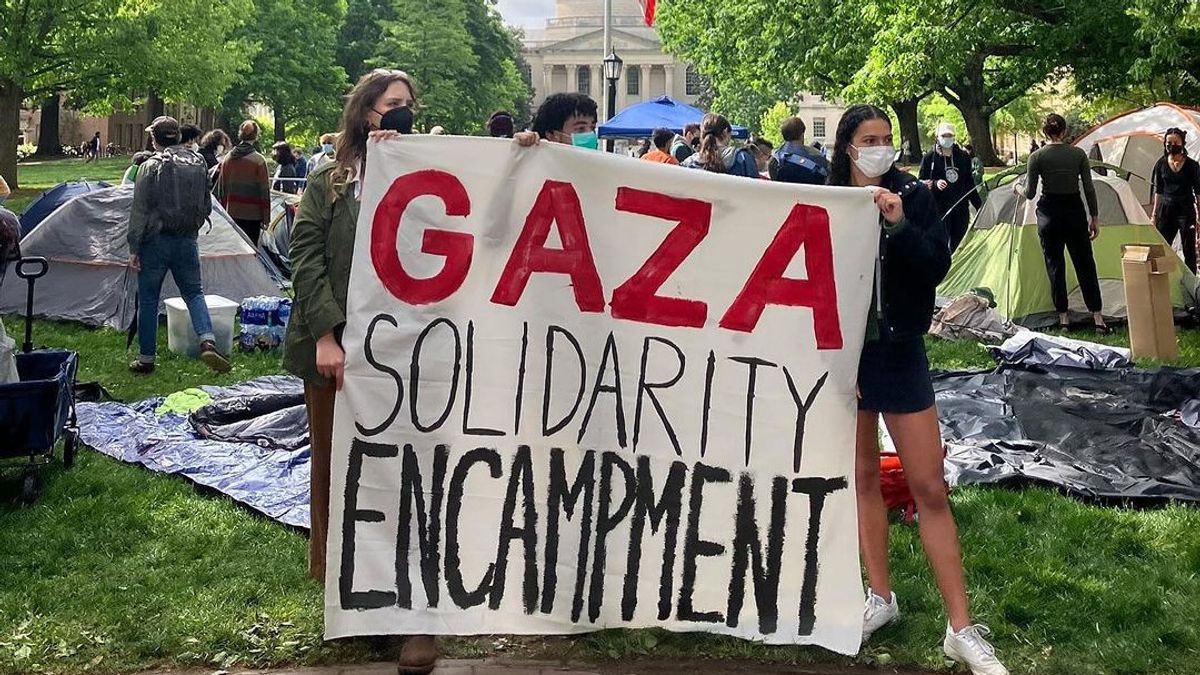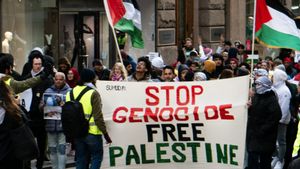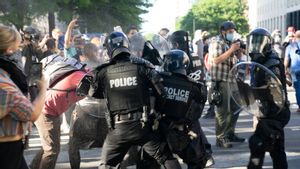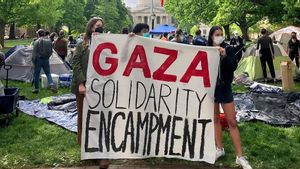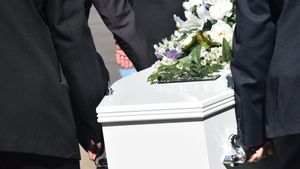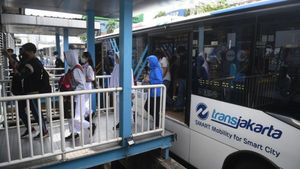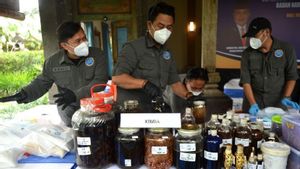JAKARTA - A wave of demonstrations took place on campuses in the United States (US) during the spring. At least 3,200 demonstrators were arrested in an act against an Israeli attack on Gaza that had spilled the blood of civilians including children.
Many of the protests that took place at public universities, private universities, large and small, urban or rural campuses in the US ended by campus pressure, ranging from agreements with academic 'threats' or disbandment by police after being summoned by the campus.
According to data analysis collected by The Associated Press quoted from NBC News, Friday, August 2, many of the student demonstrators were accused of legal articles as a result of participating in the mass action against the attack on Gaza, Palestine.
As a result of being involved in legal problems and arrests, the students faced uncertainty in academic careers. They keep doubts about whether the campus is doing.
However, many student demonstrators remain confident, know the consequences and will continue their protests.
Velencia Alvarez, for example. Washington University student from St. Louis, is currently awaiting developments from the sentence that ensnared him for being a participant in a demonstration of protests against the attack on Gaza which took place on his campus on April 27, 2024.
Not alone, Alvarez and 99 others face punishment. 23 of them are students from the University of Washington.
Because they participated in demonstrations, the students were faced with two choices by the campus.
They were asked to choose a trial at the Washington University Student Order Office or accept criminal law reconciliation for the investigation carried out by the authorities. Alvarez then took the first option.
"I don't plan to remain silent about this, and I think that's the second option," Alvarez said.
The legal raid of student demonstrations against war in Gaza
Most of the cases faced by demonstrators ranging from students, faculty employees to people who do not have any relationship with the campus involve minor offenses or low-level charges. For example, violations for not disbanding, disordered behavior, or fighting arrests.
A more serious indictment was filed against demonstrators occupying the campus building at Columbia University, USA.
During the demonstration, many students and participants of the action against the Gaza war were arrested and threatened with articles of serious violations. However, the charges against them were reduced to minor offenses.
Even the legal threat to dozens of students was finally canceled because the prosecutor considered that there was no evidence of property destruction and the students involved did not have a criminal record. This has drawn protests from Jewish groups in the US.
In northern New York, the Ulster County prosecutor asked the judge to drop 129 cases originating from the arrest of students and civilians participating in the demonstration at New York State University, New Paltz.
Police Enter Campus
A wave of demonstrations at many universities in the US this spring of this year was also accompanied by police entry into the campus environment.
The police came after a call from the campus to disperse the mass of students and civilians who staged demonstrations within the university with calls against Israeli military attacks on Gaza.
A number of campus leaders said calling on the police was the only option to stop student demonstrations. They considered the protests hindered the graduation ceremony, disrupted campus life, and called for signs and antisemites.
Student groups and a number of faculty members in the US criticized campus leaders for the action. According to their view, police actions often 'instigate' peaceful demonstrations accompanied by unnecessary repressive attitudes.
SEE ALSO:
The English, Chinese, Japanese, Arabic, and French versions are automatically generated by the AI. So there may still be inaccuracies in translating, please always see Indonesian as our main language. (system supported by DigitalSiber.id)
